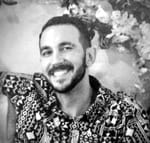Is it Political to be Human?
Take a moment and think about the conversations you’ve had today—how many of them have involved telling a story? From the benign, such as sharing an observation you made at work with a loved one, to the tantalizing, like swapping gossip with work or school friends—we, as human beings, are constantly telling stories and listening to them; the most powerful of which speak to our lived experiences and realities. The act of telling the story of a lived experience or reality is revolutionary; it has the potential to inform, engage, to change hearts and minds even. But what happens if we can’t tell those stories? What if we’re told that they’re just too divisive?
Sadly, that’s what’s happening all over the world today, as human rights issues are increasingly being framed as political. I want you to be honest with yourself—do you avoid having “political” conversations at work or at school, with your colleagues and friends? There’s no judgment here; I know I have, and, as with myself, I’m guessing at least a few of those conversations you’ve avoided involve the fundamental human rights of a group or community. I’m sure it wasn’t because you’re cold or heartless or indifferent to the struggles of others; I think it’s because of the prevalent stigma of political conversations.
A 2019 Pew Research Center survey found that 45% of U.S adults stated that "they have stopped talking about political or election news with someone as a result of something they said, either in person or online."
Human rights advocacy and political discourse have become inextricably linked. For example, do you think it’s currently possible to have a conversation about immigration at the southern U.S. border or in Europe without someone crying politics? How about talking about occupation and apartheid in Palestine? And did either or those questions cause you to shift in your seat, uncomfortably?
Now why, you may ask, are human rights issues being politicized? To answer that question, let me give you one example in the line of many such instances of this phenomenon: the framing of Muslims as members of a political ideology and not a faith group. I have spent countless hours questioning why those who follow Islam, including me, are being discussed almost exclusively in a political context. Is to be human to be political? No, that can’t be it. There has to be some incentive to politicizing Muslim communities around the world. Something so enticing that funders such as Christian Advocates Serving Evangelism, Inc., spend millions of dollars to propagate these ideas, supporting known hate organizations like The American Center for Law and Justice (ACLJ). Maybe it’s that those in positions of power, like these funders, or those who lead the organizations that they donate to, know how we feel about politics and political ideologies.
They might know perhaps that you’re not likely to talk about a Muslim student being told by his teacher that "we don't negotiate with terrorists," in response to a request for a homework extension, because you don’t want to be questioned on your politics. They might know that you'd hesitate to post on social media about the politically motivated decision of CNN to hire a NYPD official who lied about widespread anti-Muslim surveillance because there is little to no social approval or credit for doing so. They might know that you’re far less inclined to defend the rights of members of a political ideology than you are of those of a faith group, and that as a result it’s far easier to strip away the group's legal, economic, and dignitary rights. I can’t say definitively why they do what they do—what I can say is that as a result, human rights conversations, such as those regarding Muslims, are being limited to very specific contexts which don’t always include a broader demographic; these contexts often exclude those who aren’t actively engaged in political conversations, as well as those who don't identify as being overtly political. And we need everyone, or certainly as close to everyone as possible, in order to move the needle on the struggle for justice.
So, what can we do about it? I say we because by this point I hope you’re on board with my message and are ready and willing to take action. If that’s the case, I ask you one simple favor: always question framing—A.Q.F. Take that acronym, write it on a Post-it, print it on a blank piece of paper if you want, and stick it up everywhere: on your refrigerator at home, in your work cubicle, inside your school locker. And when someone tells you that talking about children at the southern U.S. border being separated forcibly from their parents is political, you point to that sign. When someone tells you that talking about a hospital in Gaza being bombed is political, you point to that sign. When someone tells you that talking about your lived experience or reality is political, you point to that sign. You point to that sign, time and time again, for yourself if not for others, so that you can always remember that you don’t have to accept the designated framing—you don’t have to debate it—you need to refute it.








